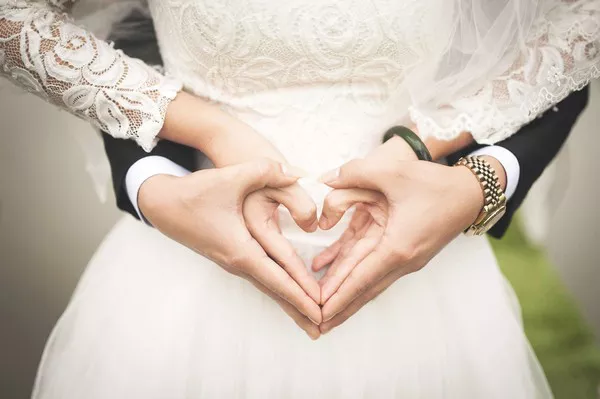Human attraction is a complex and often subtle phenomenon, one that plays a central role in forming intimate relationships. When someone has a romantic interest in you, there are often a variety of behavioral and psychological cues that may signal their feelings. However, deciphering whether someone is simply being friendly or genuinely has a crush on you can be challenging. As a psychologist, understanding these subtle signals can help people navigate interpersonal relationships and recognize when someone may be harboring a crush.
In this article, we’ll explore the psychological markers and behaviors that suggest someone might be crushing on you. These signs, often influenced by unconscious attraction, can provide valuable insight into their feelings and intentions. Whether you’re trying to determine if a friend is interested or you’re picking up on romantic signals at work or school, recognizing these signs can help you better understand the dynamics at play.
Understanding the Concept of a “Crush”
Before diving into the specific behaviors that indicate someone has a crush on you, it’s essential to understand what a crush is from a psychological standpoint. A “crush” refers to a romantic or infatuated feeling toward someone, often characterized by idealization, excitement, and sometimes anxiety. These feelings are typically more intense than a general fondness or admiration but are less developed than love. A person who has a crush on you may experience a rush of positive emotions when interacting with you, including nervousness, joy, and heightened attention to your presence.
In psychology, the attraction one person feels for another can be categorized into various types, including physical attraction, emotional attraction, intellectual attraction, and sexual attraction. A “crush” often involves a mix of these elements, and the intensity of the feelings can range from mild to overwhelming.
Key Signs That Someone Might Be Crushing on You
While everyone expresses attraction in their own unique way, there are several common behaviors and psychological cues that may indicate someone has a crush on you. Here are some of the most frequently observed signs:
1. Increased Eye Contact and Glances
One of the most common signs that someone is attracted to you is frequent eye contact. Studies in psychology suggest that when we are interested in someone, we tend to look at them more frequently, often making prolonged eye contact. This behavior is typically subconscious, as it reflects the brain’s desire to connect with and “see” the object of attraction.
If you catch someone gazing at you more often than usual, it could be a sign that they have romantic feelings for you. They may look away quickly when you notice, signaling a sense of shyness or nervousness. Conversely, they may maintain eye contact for a little longer than what would be considered typical in a friendly interaction, which can also be a sign of attraction.
2. Subtle Physical Touches
Physical contact is another powerful indicator of romantic interest. People who have a crush on you may find excuses to touch you, such as a gentle tap on the arm, brushing past you, or a pat on the back. These touches are often brief but serve as an unconscious way to establish closeness and intimacy.
Psychologically, touch activates the release of oxytocin, often referred to as the “love hormone,” which promotes feelings of affection and bonding. Subtle physical touches that occur more frequently than usual may indicate a deeper attraction. However, it’s important to note that cultural and personal differences can influence comfort levels with physical touch, so it’s essential to consider context.
3. Increased Nervousness or Self-Conscious Behavior
When someone has a crush on you, they might display signs of nervousness or self-consciousness in your presence. This can include fidgeting, playing with their hair, or adjusting their clothes as a way of trying to appear their best. They may also exhibit other behaviors such as stammering, blushing, or speaking more softly than usual when they’re around you.
These behaviors are often linked to the brain’s heightened arousal in response to attraction. The person may feel anxious or excited, and this emotional state can lead to visible physical reactions. If you notice someone becoming visibly nervous or awkward when interacting with you, this could be a strong sign that they have a crush on you.
4. Mirroring Your Actions
Another psychological sign that someone is crushing on you is when they subtly mirror your behavior. Mirroring, or mimicking, is an unconscious act that typically occurs when people are emotionally connected or interested in each other. If the person you’re interacting with begins to mirror your body language, speech patterns, or gestures, it’s a strong indication of attraction.
For example, if you cross your arms, they might cross their arms. If you lean forward in conversation, they may lean forward too. This mimicry is a subconscious attempt to build rapport and create a sense of connection. It’s often a sign that the person feels comfortable with you and is subconsciously trying to bond with you.
5. Compliments and Increased Attention to Your Appearance
When someone has a crush on you, they are likely to give you more compliments, often focusing on both your physical appearance and personality traits. These compliments might feel more specific or personal compared to those from friends or acquaintances, as the person is likely paying close attention to your attributes that they find attractive.
They might compliment your smile, your sense of humor, or how you carry yourself. Additionally, the person may go out of their way to show interest in your life, asking questions about your hobbies, work, or personal experiences. Their attention and compliments are usually a way of showing admiration and admiration, which is common when someone has a crush.
6. Engaging in Playful or Flirtatious Behavior
Flirting is a classic indicator of romantic interest. When someone is crushing on you, they may engage in playful teasing, light-hearted joking, or other flirtatious behaviors. This can include making subtle jokes at your expense, offering kind but teasing remarks, or using humor to create a sense of intimacy.
Flirting serves as a way to gauge the level of mutual interest and to test the waters for deeper romantic engagement. If you notice someone teasing you or engaging in playful banter more than usual, they might be trying to signal their attraction in a fun and non-threatening way.
7. Consistent Communication and Efforts to Stay in Touch
People who have a crush on you often make an effort to stay in touch, whether through text messages, social media interactions, or casual check-ins. They might initiate conversations more frequently, ask about your day, or share personal stories to create a sense of closeness.
Psychologically, the desire to maintain communication comes from a deep-seated need to stay connected to someone you care about. If someone consistently reaches out, tries to engage you in conversation, or seems to be “checking in” regularly, this is a strong indicator that they have feelings for you beyond mere friendship.
8. Behavior That Suggests Jealousy
Jealousy can sometimes be a sign that someone has a crush on you, particularly if they show discomfort or irritation when you interact with others. If the person seems to get a little too curious or protective when you talk to other potential romantic interests, it could suggest that they have unspoken feelings for you.
For example, they might ask you questions about your other relationships or seem visibly bothered if they see you with someone else. These signs are often unconscious reactions that stem from the fear of losing the potential for a romantic relationship.
9. They Remember the Small Details
Someone with a crush on you may remember small, seemingly insignificant details about your life, preferences, and interests. They may recall a favorite book you mentioned or a hobby you talked about in passing, and bring it up again in conversation. This attention to detail signals that they are paying special attention to you and are interested in getting to know you on a deeper level.
Psychological Insights Behind a Crush
From a psychological standpoint, crushes involve several cognitive and emotional mechanisms. The brain’s reward system plays a key role, particularly in the release of dopamine, the neurotransmitter associated with pleasure and motivation. When someone experiences attraction, the brain’s reward centers are activated, which creates feelings of excitement and desire.
Additionally, the concept of proximity plays a role in the development of crushes. According to the mere exposure effect, people tend to develop stronger feelings for individuals they encounter regularly. If someone is in frequent contact with you or shares similar interests, their attraction may increase over time.
Lastly, people may feel a heightened emotional connection when they perceive the object of their affection as being rare, desirable, or “out of reach.” This sense of exclusivity can make someone more inclined to develop a crush, fueling their desire to be close to you or win your affection.
Conclusion
Recognizing the signs that someone is crushing on you can be both exciting and overwhelming. If you believe someone is interested in you romantically, it’s essential to consider how you feel about them. If you share their feelings, you may want to reciprocate their interest, engaging in more one-on-one conversations and exploring the potential for a deeper relationship.
However, if you don’t feel the same way, it’s crucial to handle the situation with sensitivity and respect. Clear communication and setting appropriate boundaries are key to maintaining a healthy relationship, whether it’s romantic or platonic. Understanding the psychological cues behind attraction can help you navigate the dynamics of romantic interest with empathy and awareness.
In the end, whether you decide to explore a relationship or simply appreciate the attention, recognizing the signs of a crush allows you to engage more consciously with others and make informed decisions about your relationships.
Related topics:





















